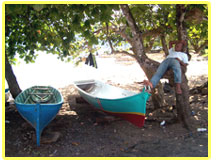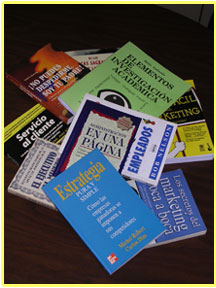Useful Articles



Tips to learn Spanish
Preparation
Buy a very good Spanish-English dictionary (though not for use in Spanish classes). Recommendations are the University of Chicago Dictionary and Larousse Dictionary. For those who are just beginning to learn Spanish, buy a small phrase book (with some basics in pronunciation) and learn some useful phrases such as “please”, “thank you”, “excuse me”, “good morning!”, “Can you help me?”, etc. You will be surprised how many simple situations you can deal with.
During your stay - Start! Don’t wait until you think you have learned “enough” before you start communicating in Spanish, start today and you will learn by practice.
Listen. You are going to hear a lot of Spanish spoken in your classes. You may hear Spanish on the radio, on TV, or in music. Listen actively to Spanish whenever you have the chance.
Use what you already know. Many Spanish words have the same Latin roots as English words you already know. You are going to hear some words that seem familiar. Take a guess at their meaning.
Watch. Look at the expressions, the gestures, and the movements of people who speak Spanish. You will pick up many clues about what they are saying.
Read. Try to read in Spanish as well to improve your vocabulary. For example buy a newspaper sometimes or buy a book in Spanish. Depending on your level, good books to read are from the series called “El Barco de Vapor”. These are books for children on several different levels, which are recognizable by their colors. You can find them for example in Libreria Lehmann’s. The newspaper La Nacion also produces small and very cheap books for children every two weeks, you can find them in every newsstand on the streets. Reading will help you improve your vocabulary a lot and gives you a better idea of the content to use the words. Also reading out loud can help to improve your pronunciation.
Work with someone. To communicate in Spanish, you need to talk with and listen to someone. Work with a friend, your teacher, an exchange student. And work together…juntos! Also try speaking with non-Spanish students in Spanish, helping each other with the language will improve your Spanish because you have to explain it.
Relax. You are going to learn Spanish. It will take time. As you are learning, don’t worry. Make an effort, and you will make progress every day.
Take charge. Be positive and assertive. Know that you can and will succeed. Ask a question when you don’t understand what is said. Look up words that you don’t know. Find Spanish magazines and newspapers to read. The biggest factor that will contribute towards your success is you. Set goals. Take charge of your own learning!
Observe. On the way to school, write down all signs in the streets and look at these words in your dictionary or discuss them with your teacher.
Remember the fact that even though you may have a bilingual in class, a monolingual teacher (Spanish) is considered to be the ideal within the learning process because the student is forced to listen to, to answer and ask questions only in Spanish (like a child acquires the language).
